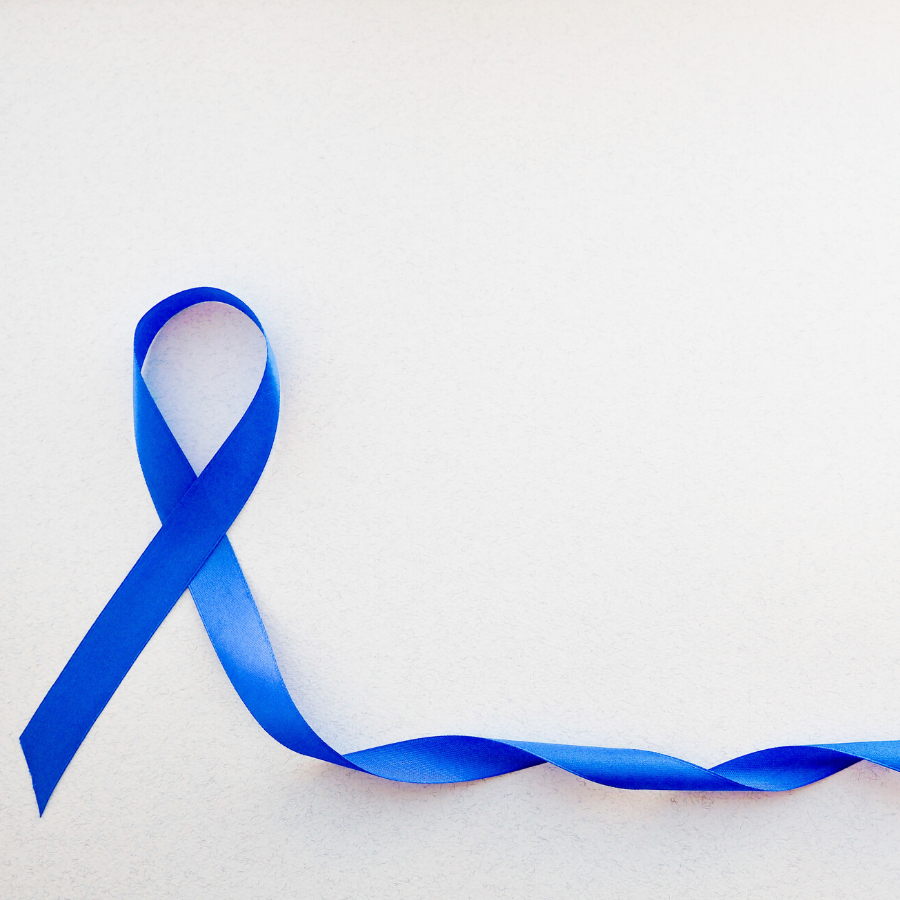
I am writing this blog for Colon Cancer Awareness month which is this month, March. March has always been one of my favorite months because of March Madness (NCAA basketball tournament). It is also the month when in 2000 then President Bill Clinton signed a White House Proclamation officially designating March as Colon Cancer Awareness month.
About a year ago, a friend of mine who just turned fifty went for her screening colonoscopy and was found to have an early stage colon cancer requiring surgery. She was understandably upset when she heard the word CANCER but was relieved in the end that she had her colon cancer screening and did not delay which could have led to a different outcome. She, along with my patients, (I am a Gastrointestinal Oncology Nurse Practitioner) inspired me to proceed with my first colonoscopy last year. The American Cancer Society (ACS) changed their recommendation to start colon cancer screening at age 45 in 2018 which had previously been to start at age 50. The ACS made changes because data showed there was a rising incidence of colorectal cancer being diagnosed in younger and middle-aged patients. A sessile serrated adenoma was found when my colonoscopy was done. This type of polyp is not cancerous but can be pre-cancerous. This type of polyp has an increased risk of developing into a colon cancer if not addressed early. With this being identified I had a repeat colonoscopy this year and no polyps were seen. My gastroenterologist suggested a repeat colonoscopy in two years. Colon cancer screening presents concerns for many patients that are reported as: unpleasantness of the prep, financial costs, time away from work/limit time to complete the prep, lack of transportation to appointments and now COVID concerns. Colorectal cancer screening should not put off until the pandemic is over. I try to reassure my patients when they are due for their colonoscopy screening as part of their surveillance after their colon cancer treatment.
For patients who do not have a history of colon cancer there are a few options for colon cancer screening. Colonoscopy is the preferred and gold standard for testing. Other tests include: flexible sigmoidoscopy, CT colonography, FIT (fecal immunochemical test), High-sensitivity Guaiac based Fecal Occult Blood Test (HSgFOBT), Multi-target Stool DNA Test (MT-sDNA). Each of these tests have pros and cons as any testing does. You should discuss the options and what is best for you with your primary care provider.
There are few things I would recommend that you ask your primary care provider when discussing colon cancer screening:
- If you are 45 and older ask your Primary Care Provider (PCP) if they recommend you schedule your screening colonoscopy.
- If you are concerned about a colonoscopy, ask your PCP what are other options for colon cancer screening and what are the pros/cons of that type of testing versus a colonoscopy?
- What do I need to do to prepare for the test?
- What should I expect during the test and how long does it last?
- How long does it take to get the test results?
- What happens if an abnormality is identified?
- What are things I can do to prevent developing colon cancer?
I strongly recommend commitment to colon cancer screening as it can decrease the deaths related to colon cancer. Screening is most effective when it is done! So get to it !
Liz Dunphy, DNP, CRNP is a gastrointestinal (GI) oncology nurse practitioner at the Abramson Cancer Center at Penn Presbyterian Medical Center and teaches at the University of Pennsylvania School of Nursing in the Adult Oncology Specialty Minor/Post Masters Certificate Program. Liz works with two oncologists in treating patients with various GI cancers, educating patients about their diagnosis and treatment, managing side effects related to treatment and cancer, implement survivorship and surveillance care plan and help patients and their families navigate end of life care.





